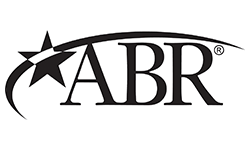Seniors have traditionally been the targets, but an urgent demand for home improvements born of the work-from-home spike, a dearth of tradespeople, and a shortage of building materials has increased the potential for home improvement fraud.
Bringing a stranger into your home can be a leap of faith, especially if you haven’t done all your homework. According to HomeAdvisor, an estimated 20,000 to 100,000 scammers try to pull the wool over homeowners’ eyes every year.
Knowing the signs of home improvement fraud may keep you from becoming the next victim of a home repair scam.
What Is a Home Improvement Scam?
A home improvement scam occurs when a company or contractor — or a con artist posing as one — tries to swindle a homeowner out of money in exchange for a renovation or remodel that goes unfinished or is botched.
Many times, home improvement scammers go door to door in search of their next victims. A rule of thumb: If an offer sounds too good to be true, it probably is.
There are many kinds of home improvement scams out there. Seniors have been the most targeted group, but people of all ages need to stay alert to these common frauds.
1. The ‘Free’ Inspection
“There’s no such thing as a free lunch” holds true when it comes to someone showing up on your doorstep and offering a free inspection. What’s their end game?
The Better Business Bureau reports that scammers and con artists will talk their way into a home to, say, inspect a roof, then cause damage like tearing off shingles to create a situation that actually then does require repairs.
2. Advertising by Flyer
Handymen often blanket communities with flyers in the hopes that a small percentage of people will call. It’s a good idea to treat such random distributions in your neighborhood as a sign to double-check credentials and legitimacy.
You may also find this a common occurrence after a storm if you live in a location prone to hurricanes or tornadoes. It would be smart to do your research before signing over your insurance check to someone who drops a flyer off.
3. Door-to-Door Contractors
If a contractor knocks on your door claiming to have leftover supplies from another project and offers you services for a steal, that’s a red flag. While the door-to-door salesman might be a real contractor, the construction industry is booming, so anyone going door to door to solicit business is likely not a serious professional or in demand.
4. The Handshake Deal
No contract? No job. Homeowners should always have an ironclad contract in place before any money is exchanged. And if a contractor asks for cash, that’s a potential sign of a scammer (or at least someone looking to avoid the IRS).
Likewise, the contractor should not ask for more money than was decided on in the initial contract and scope of work. Claiming unexpected problems is a sign of a potential scam or an inexperienced contractor.
If there are potential variables in the project, you might want to spell out in the contract that extra work will require a change order, that is, both parties will agree to the additional work and an added fee.
5. No-Credential Contractors
Many states don’t require a credential from a contractor if the amount of their annual work is below a certain dollar figure. While it’s unusual for a home improvement company or individual to not have credentials, it’s not unprecedented.
In general, it’s wise to treat non-credentialed contractors with a healthy awareness that they potentially aren’t serious business people.
How to Avoid a Home Improvement Scam
While home repair scams are good to know about, it’s also important to realize that not every contractor falls into that category, of course. If you take these tips into account, you’ll help yourself avoid a home improvement scam down the road.
1. Consider Only Contractors Who Are Licensed and Insured
It’s always smart to work with only licensed professionals who are insured, but in this case especially, a contractor who has their own license and insurance is likely not to be a scammer.
One way to get a background check on a contractor candidate is by calling the Better Business Bureau and requesting their rating, as well as asking if there are any complaints against them.
2. Get Recommendations From People You Trust
One way to avoid getting scammed is by working with contractors who come highly recommended by your friends, family, colleagues, or acquaintances. It’s always a gamble hiring a worker you find via online sources, so the more personal ties you have to contractors — like connections to those who have actually hired them in the past — the less likely it is that you’ll fall victim to a scam.
3. Get Multiple Estimates
For any construction or remodel project, you’ll want to solicit bids. Usually, a minimum of three bids will give you an idea of the price range for your home improvement ideas.
By getting estimates from various professional contractors, you’re less likely to get scammed by someone trying to take advantage of you because, say, you live in a high-dollar neighborhood or drive a nice car.
4. Read the Contract Carefully
One of the easiest ways to be taken advantage of in any project is by not reading the contract in detail. If the contract is only one page long and doesn’t spell out the basics like budget, deposit, timing, or how to handle change orders, you’re setting yourself up for potential issues as money starts changing hands and construction begins.
And if there are areas of concern in the contract the contractor gives you, you might consider hiring a lawyer to review it and make any necessary revisions for you.
The Takeaway
Stay alert to home repair scams by getting referrals, asking contractors for references, reading all contracts meticulously, and only hiring professionals who are licensed and insured.
Kristin Luna




